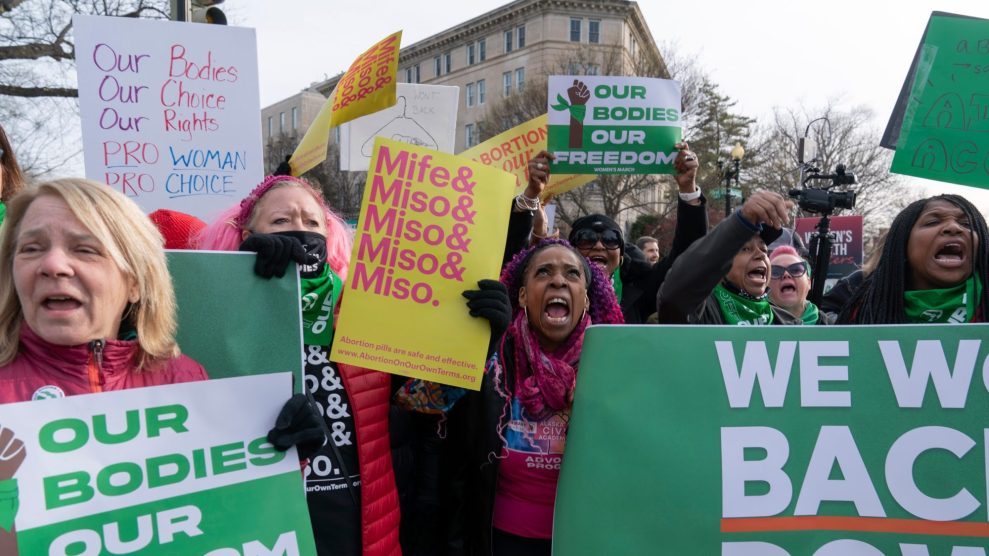Efforts by the U.S. government to create an effective, comprehensive strategy against terrorist attacks have lost momentum, while Americans, paradoxically, have become complacent about the terrorist threat. So says a federal report released this week.
The report is the last of five put out by the Gilmore Commission, a federal advisory panel created by Congress in 1999 to consider U.S. preparedness for threats to national security, and headed by James Gilmore, a former Republican governor and current head of the Republican National Committee. It found that federal resources and attention have been diverted away from homeland security to such matters as the war in Iraq, hurricane Isabel, and the flu epidemic, and recommends a number of security-enhancing steps the Bush administration needs to take — strongly warning, however, against any move that would undermine civil liberties.
Part of the problem is logistical. Federal officials, the report says, have not given state and local level authorities clear direction on what they need to do to combat terrorism, and the private sector (which includes power plants and the airline industry) is not sufficiently involved in security efforts. The commission also found significant problems within the newly formed Department of Homeland Security, which has struggled to coordinate the 22 agencies under its roof. Some of the problems, the report says, are essentially teething troubles, but it found that the department is lagging in crucial areas such as the analysis and dissemination of intelligence to local law enforcement and first responders. The commission recommends the creation of a White House-level entity with clear authority the various bits of the department.
The commission also warns of a growing complacency among the American people:
“The momentum appears to have waned”. There may be a “perception of enhanced security that causes the nation to become complacent about the many critical actions still required.”
Congress and other government agencies have already adopted 125 of 144 recommendations contained in the commission’s last four reports. But the report was also careful to warn the government of the
“the vast potential to invade personal privacy” that comes with heightened security measures, affecting especially people of middle-eastern origin or immigrants. Indeed, The Department of Homeland Security has come under scrutiny for questions of abuse in the name of anti-terrorism methods:
“As more terrorist attacks occur, the pressure will rise to lessen civil liberties, albeit perhaps with different labels. Governments must look ahead at the unintended consequences of policies in the quiet of the day instead of the crisis of the moment.”
The question, as ever, is where to set the balance between national security and civil liberties. In the most recent example of the tension between these two principles, Homeland Security officials said Wednesday that they’d like to add tens of thousands of illegal immigrants and foreign students to an FBI database designed primarily to help police catch wanted criminals. This move is already raising concerns among civil liberties advocates and law enforcement groups, who fear it gives police too much latitude to apprehend illegal immigrants who have committed no serious crimes. It could violate state rules that prohibit police from enforcing federal immigration laws.
The commission recommended that the president name a bipartisan civil liberties oversight board to assess the impact of anti-terror measures such as the Patriot Act.
Time Magazine reports that when asked about the report, White House spokeswoman Claire Buchan said that “the president is committed to ensuring that we do everything possible to protect America from the threat of terrorism and that we do so in a way that also adheres to all laws.”
(Arguably, “everything possible” is overstating things.)
Meanwhile, echoing the report’s warnings, a poll commissioned by the ACLU shows that most U.S. voters surveyed thinks that the Patriot Act, which permits law enforcement officers to tap phone lines, track Internet and cell phone usage, share intelligence information and detain immigrants, goes too far in restricting civil liberties. Though the poll had a fairly small sample size (400 people in four states), a majority of those polled said they were more likely to support a presidential candidate who believes the Patriot Act goes too far in restricting civil liberties and has harmed innocent people than a candidate who says the law has helped capture terrorists and keep the country safe.















